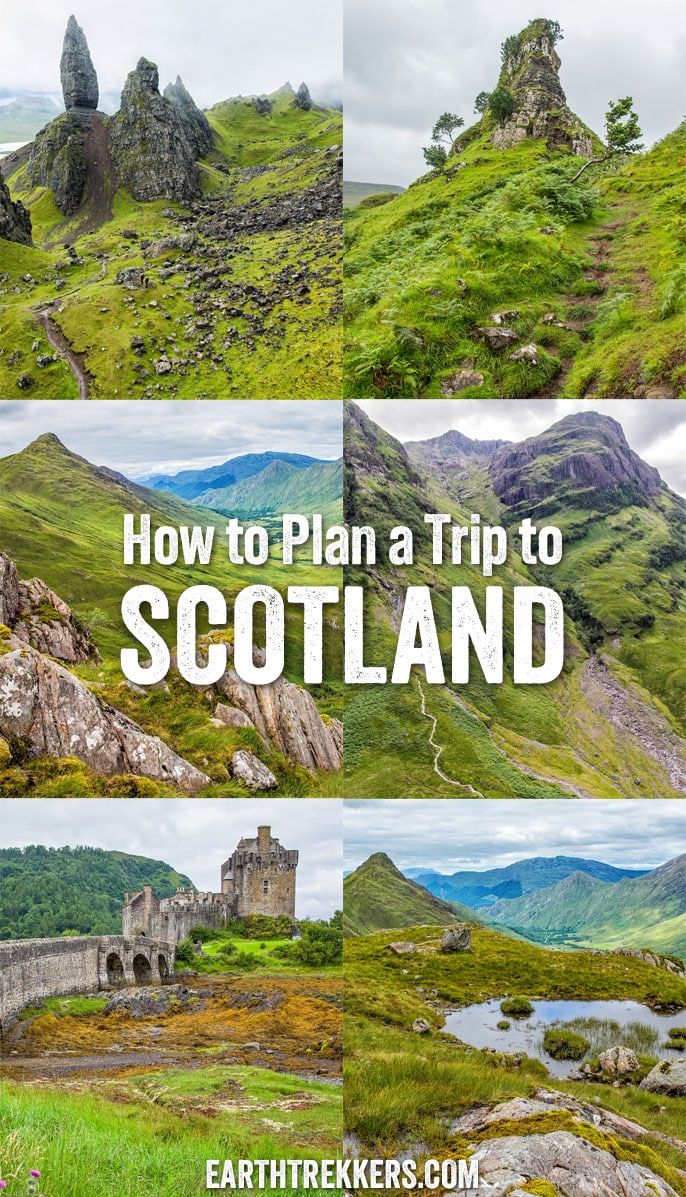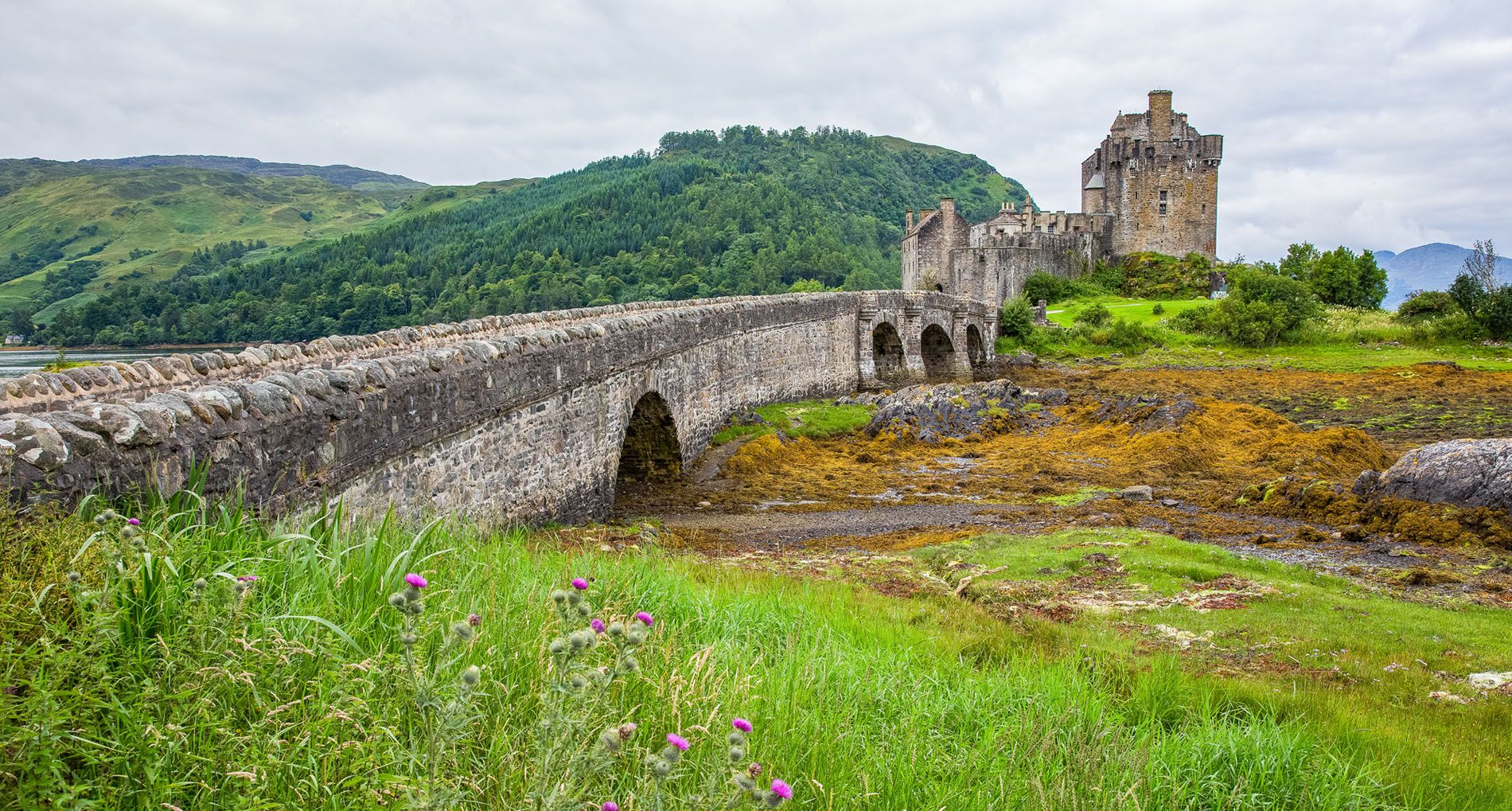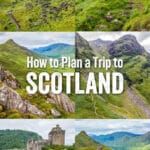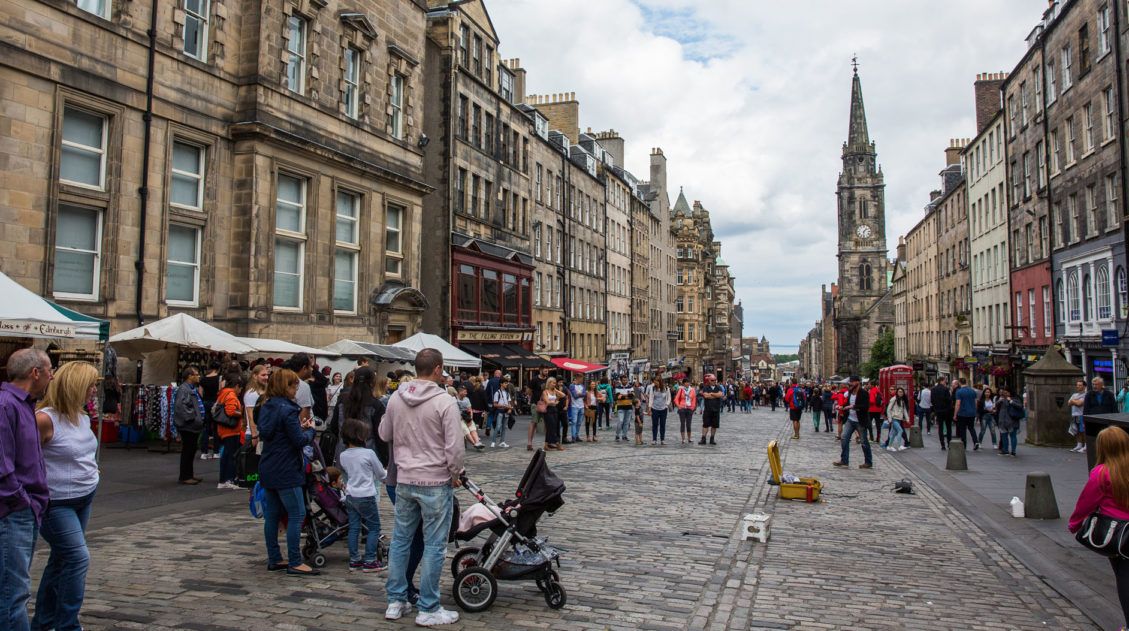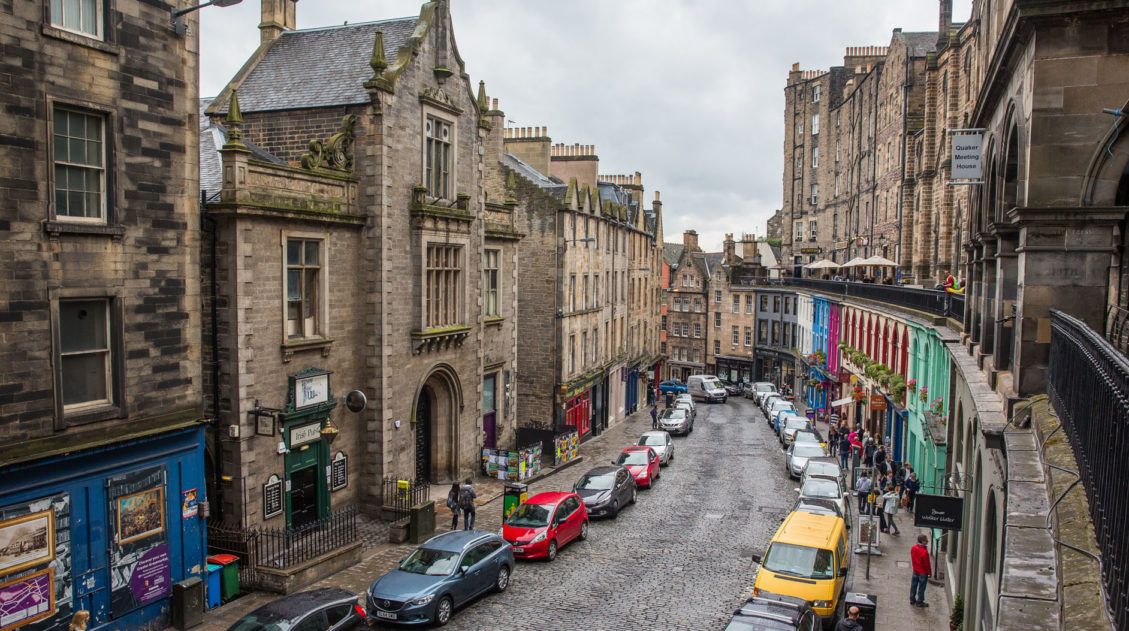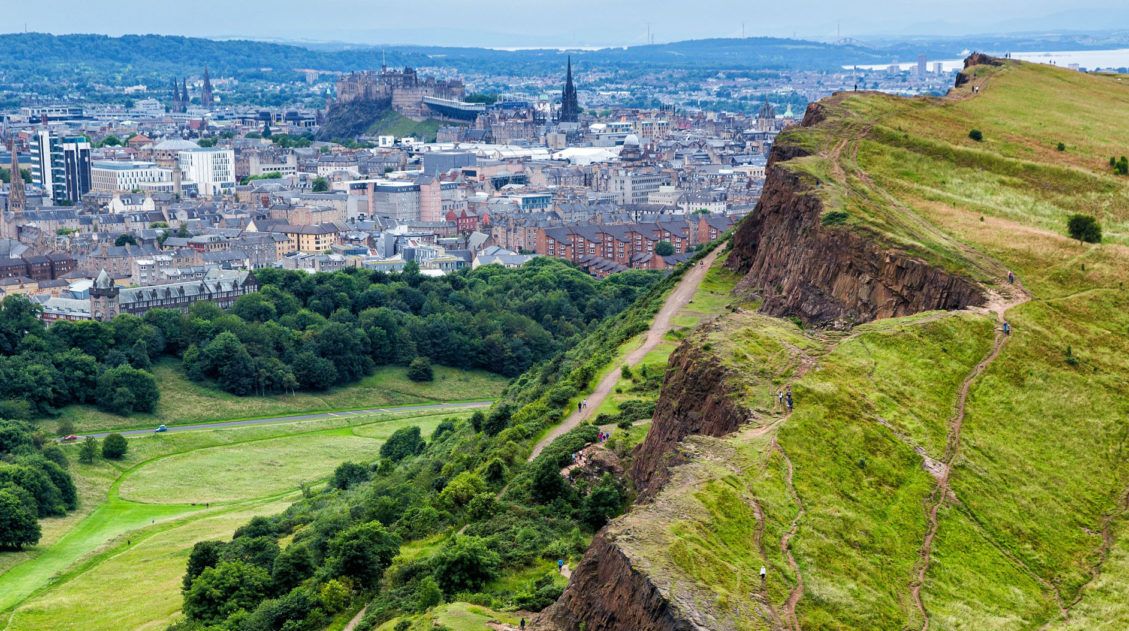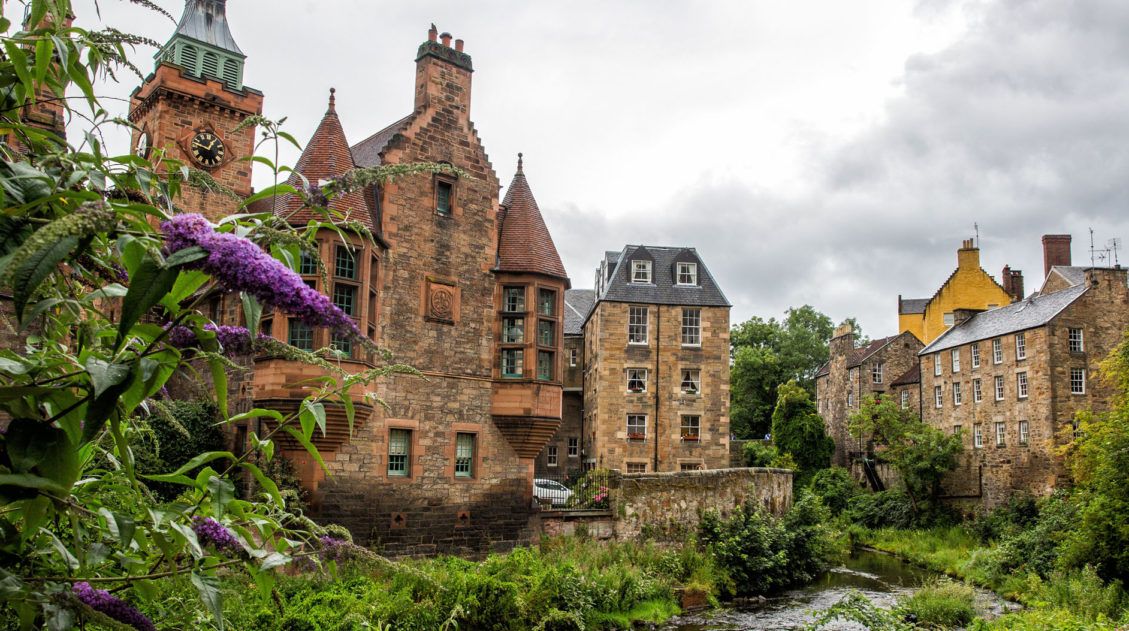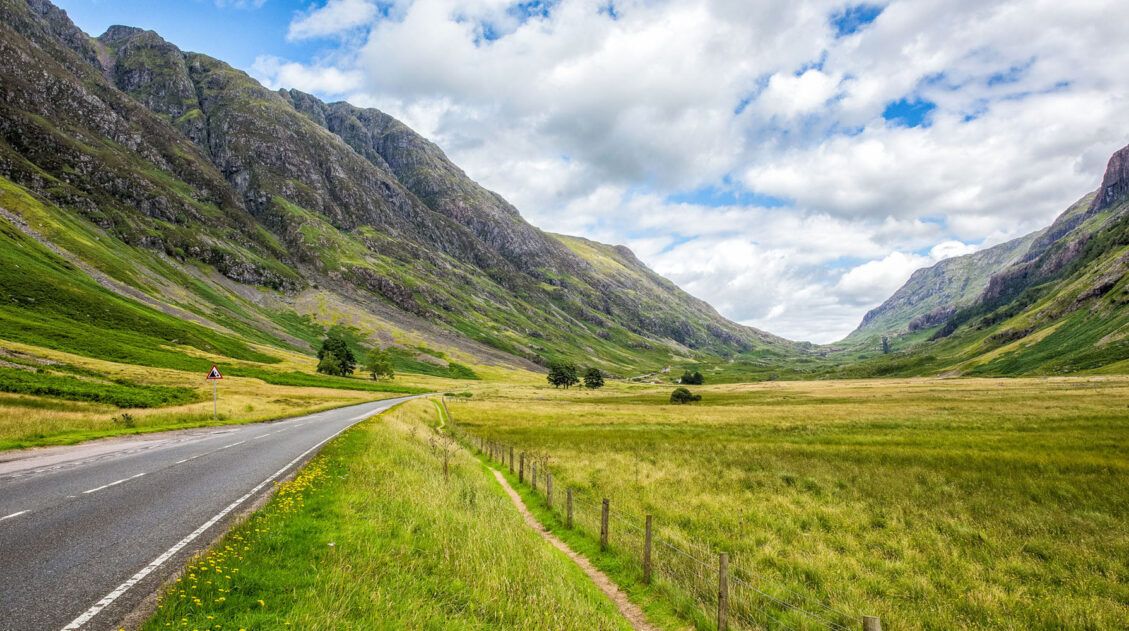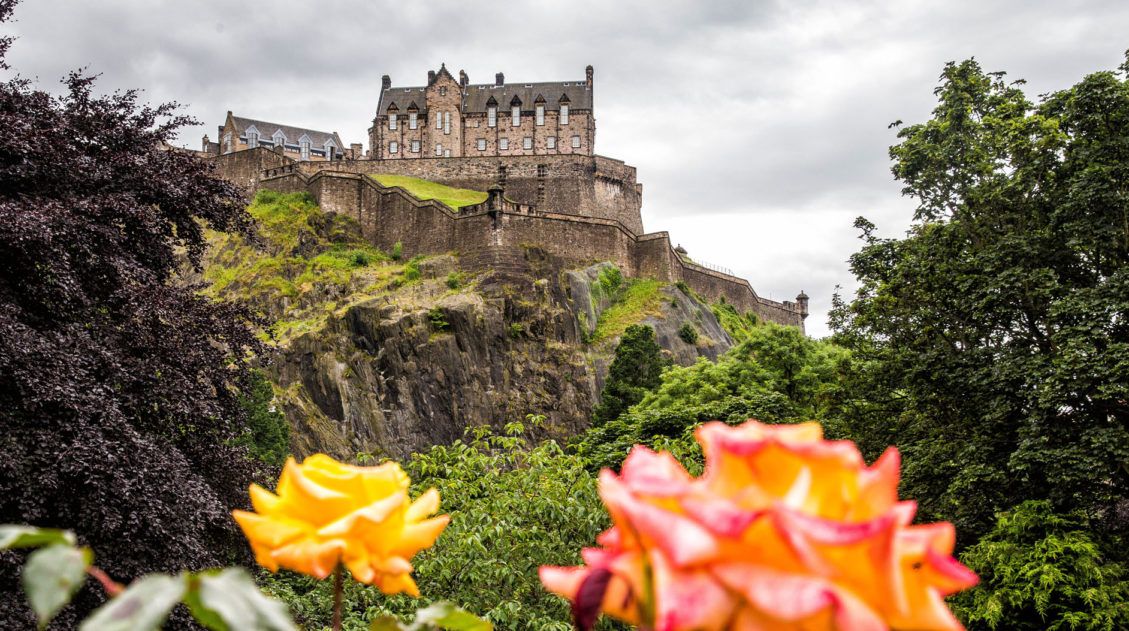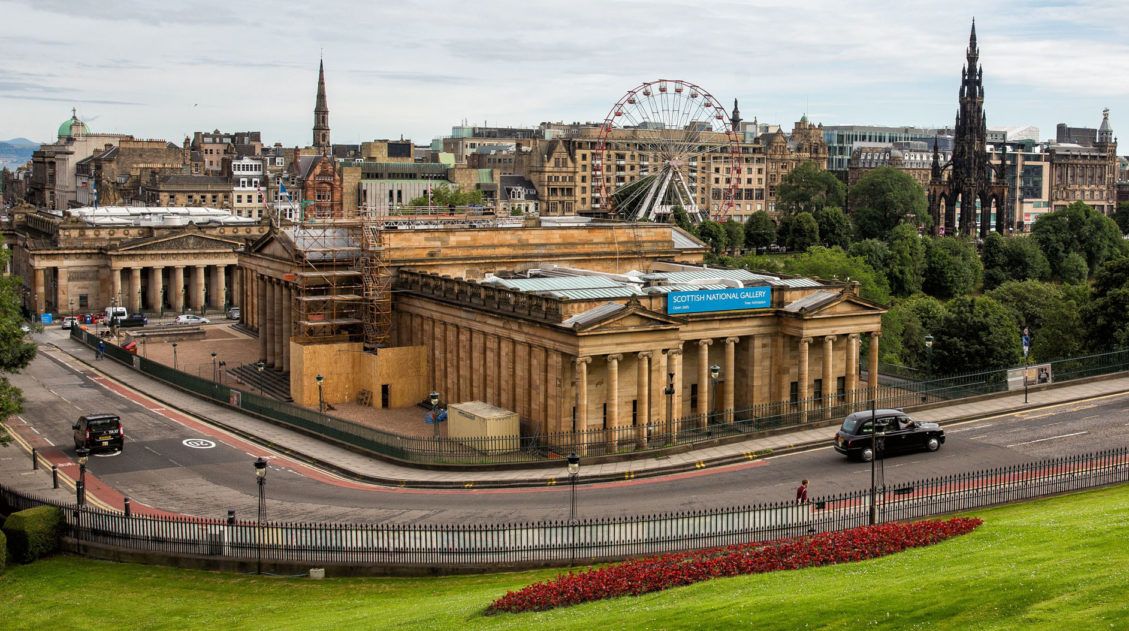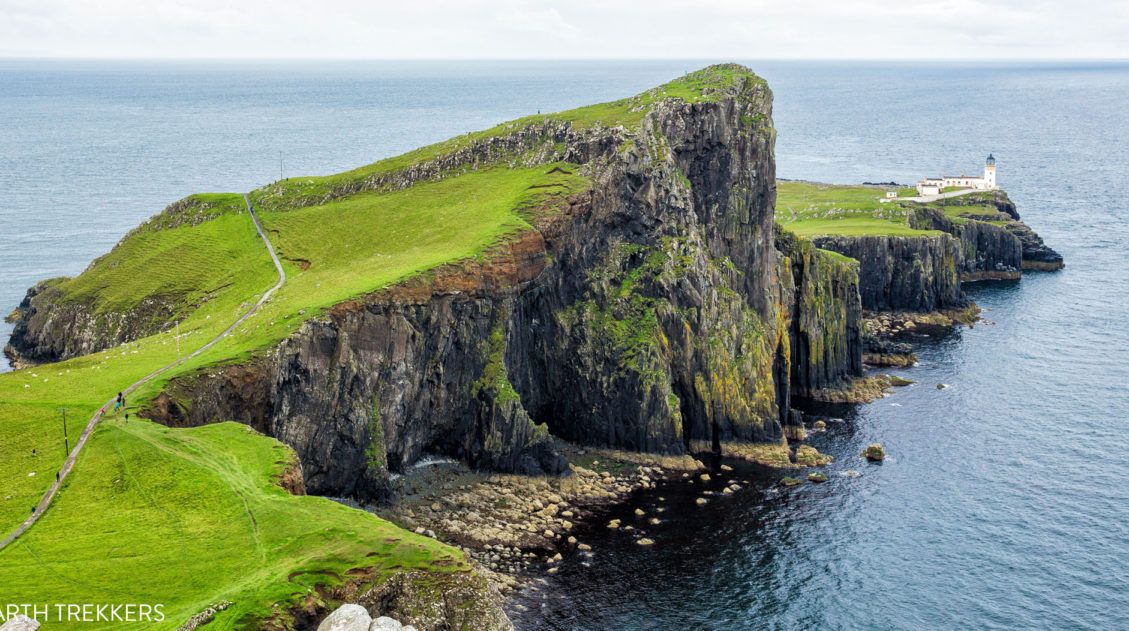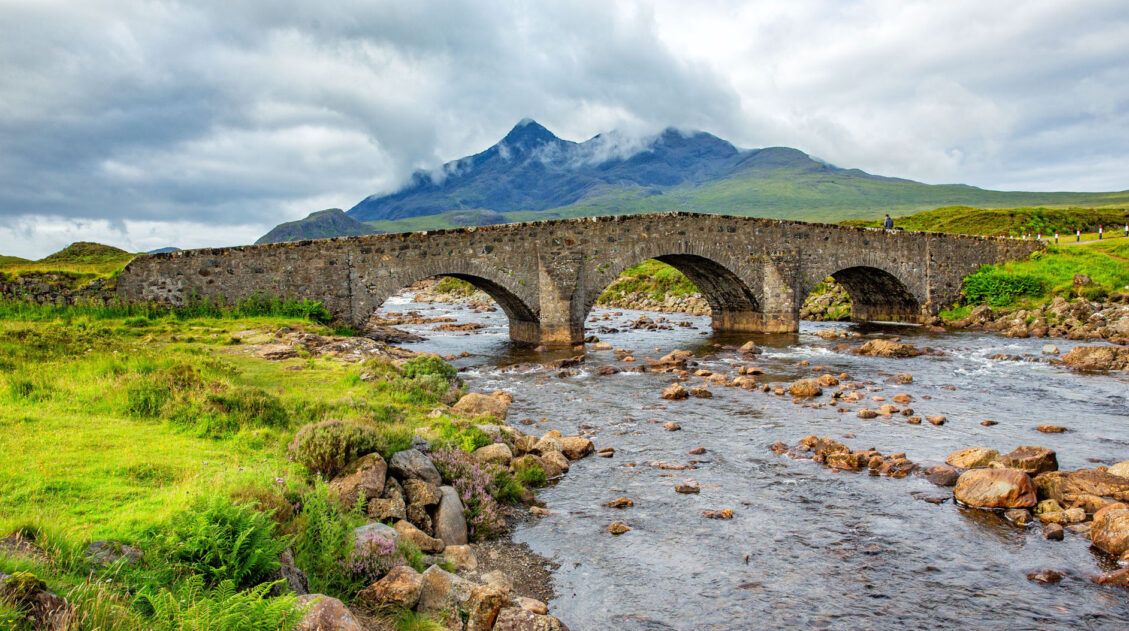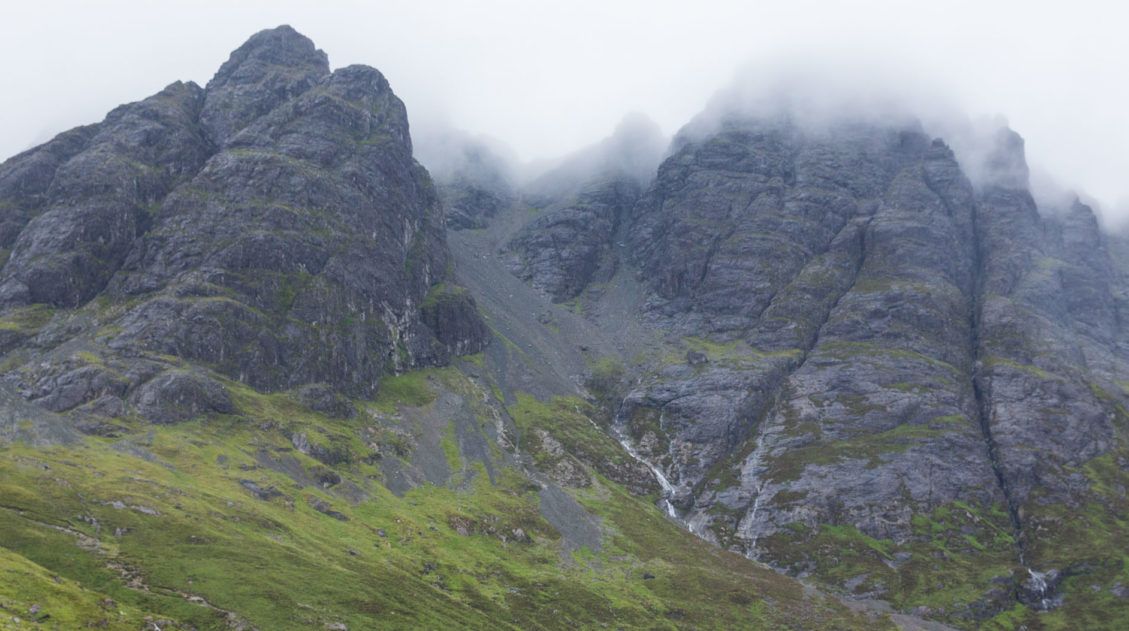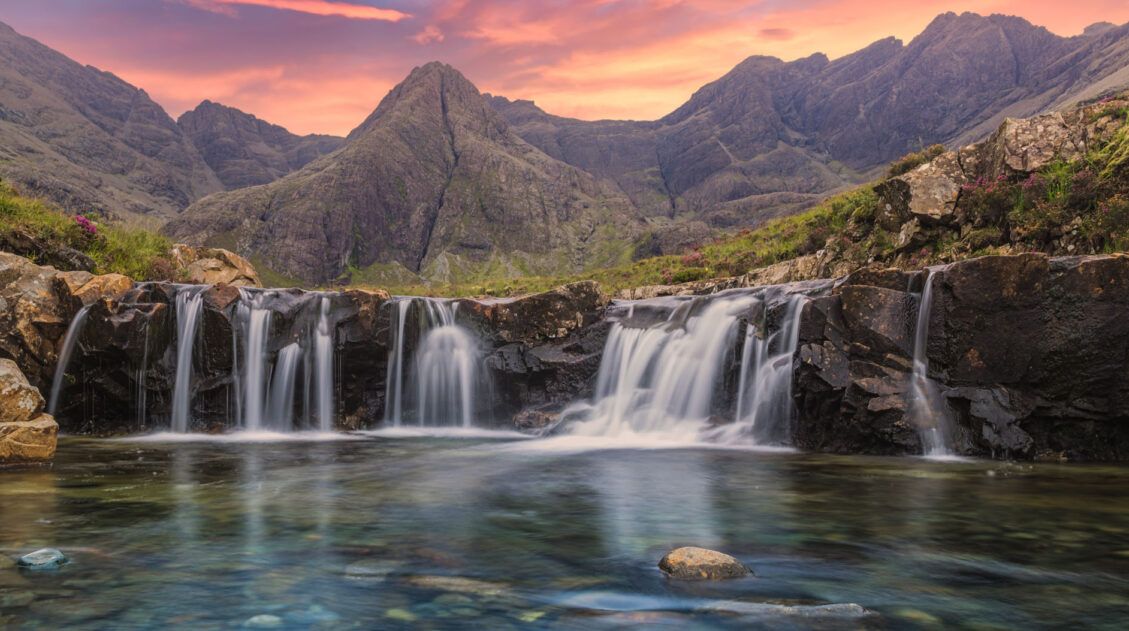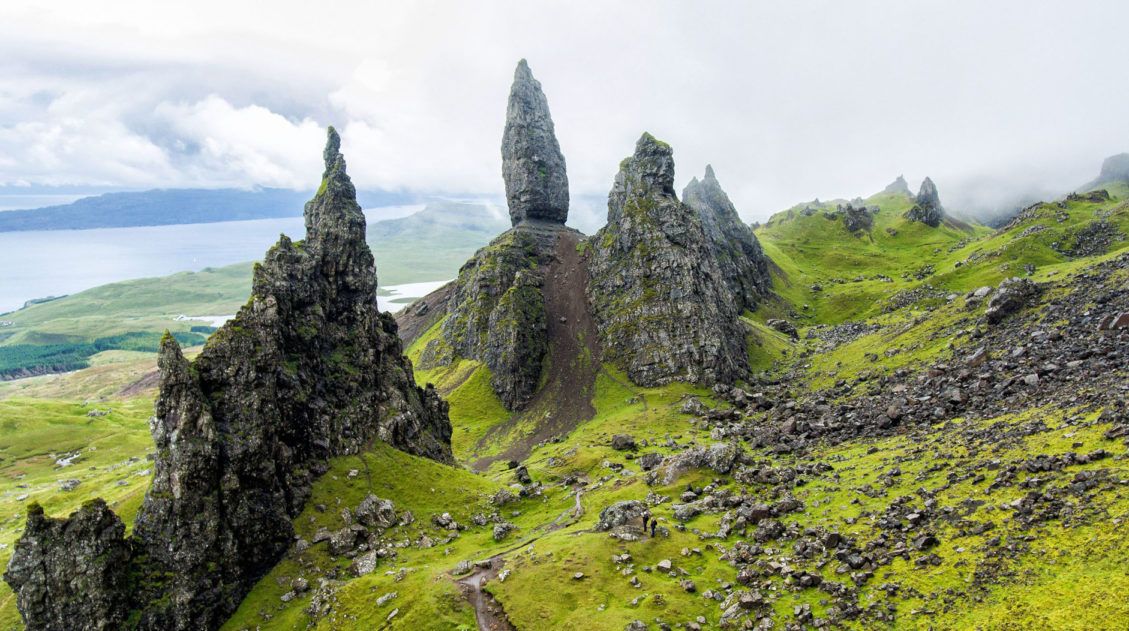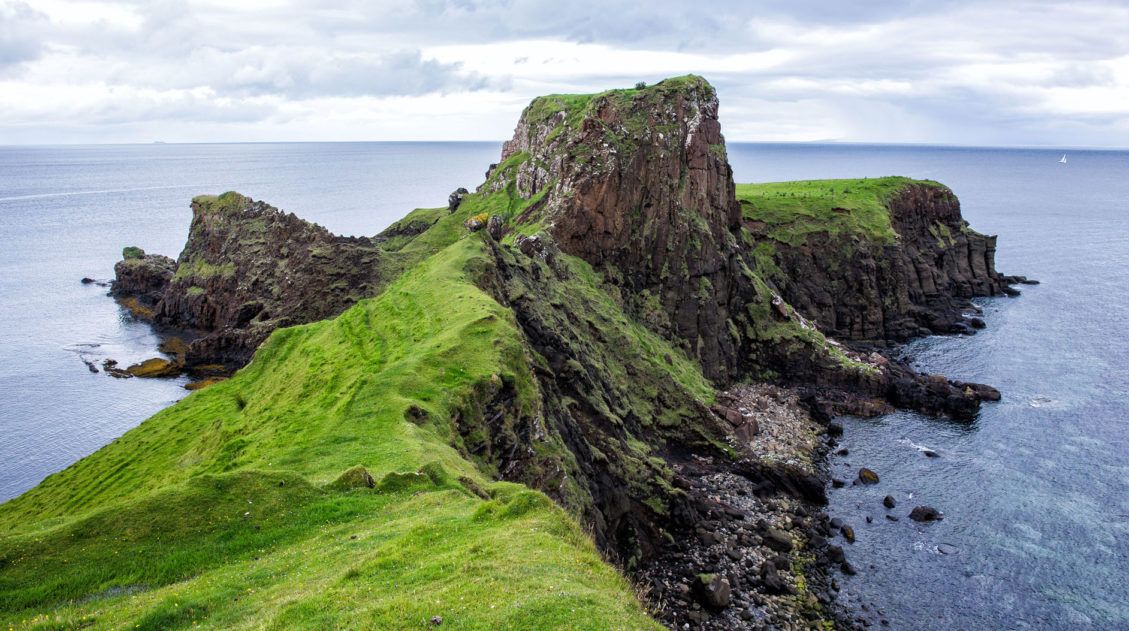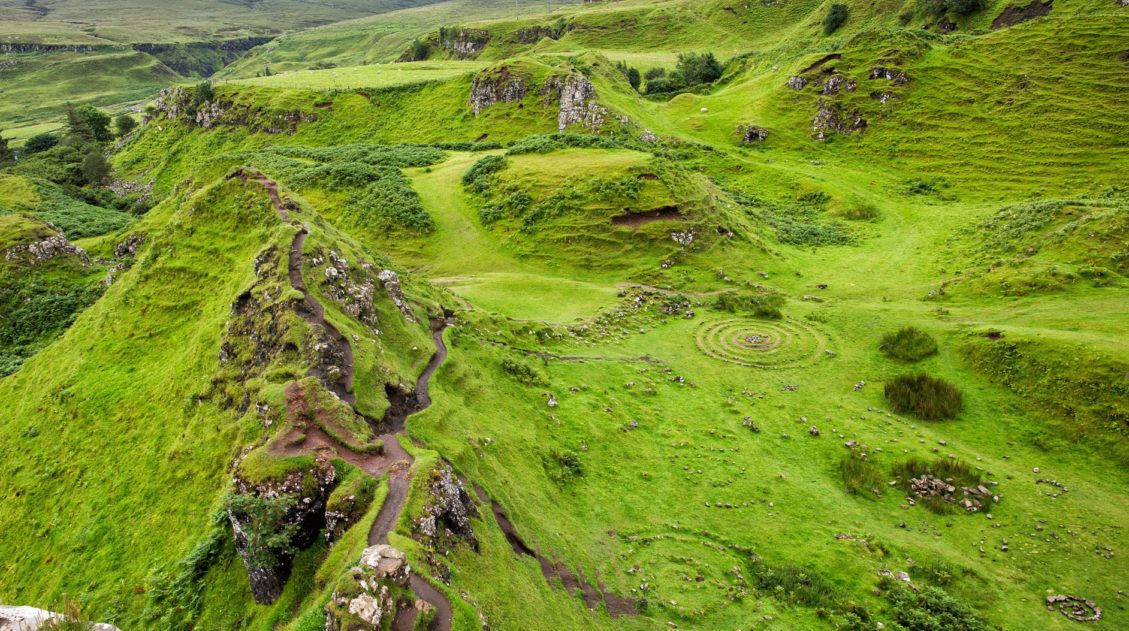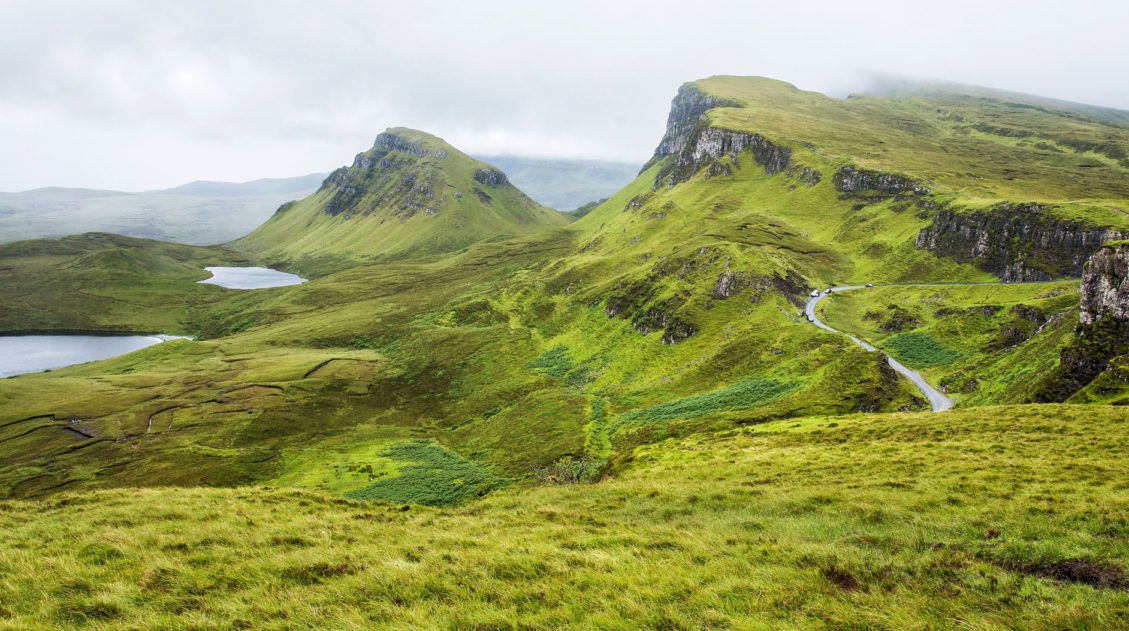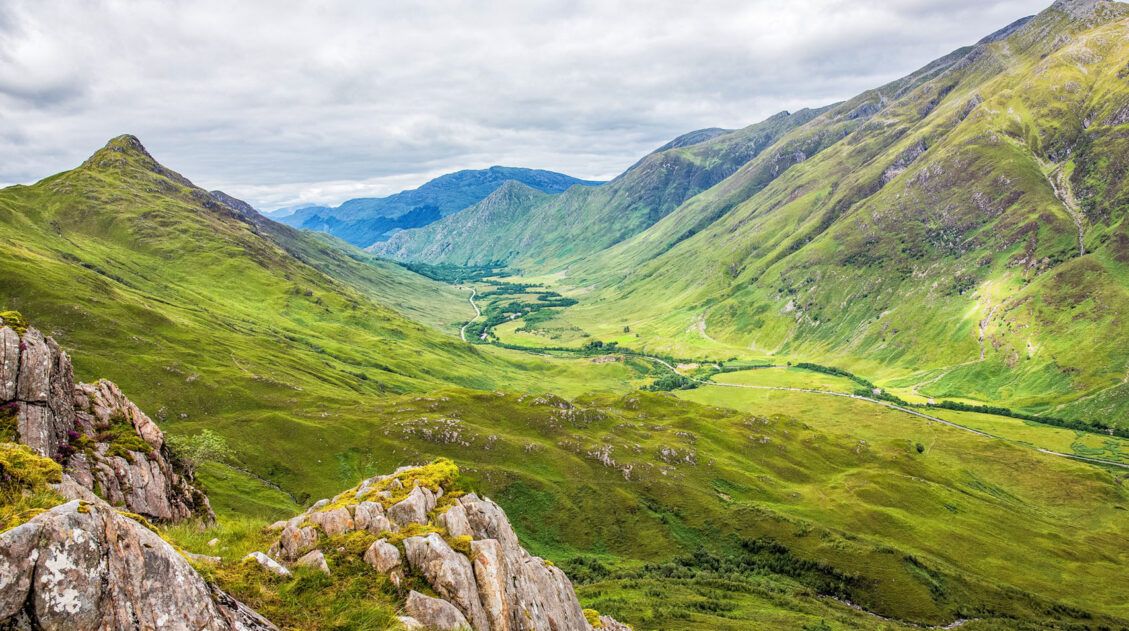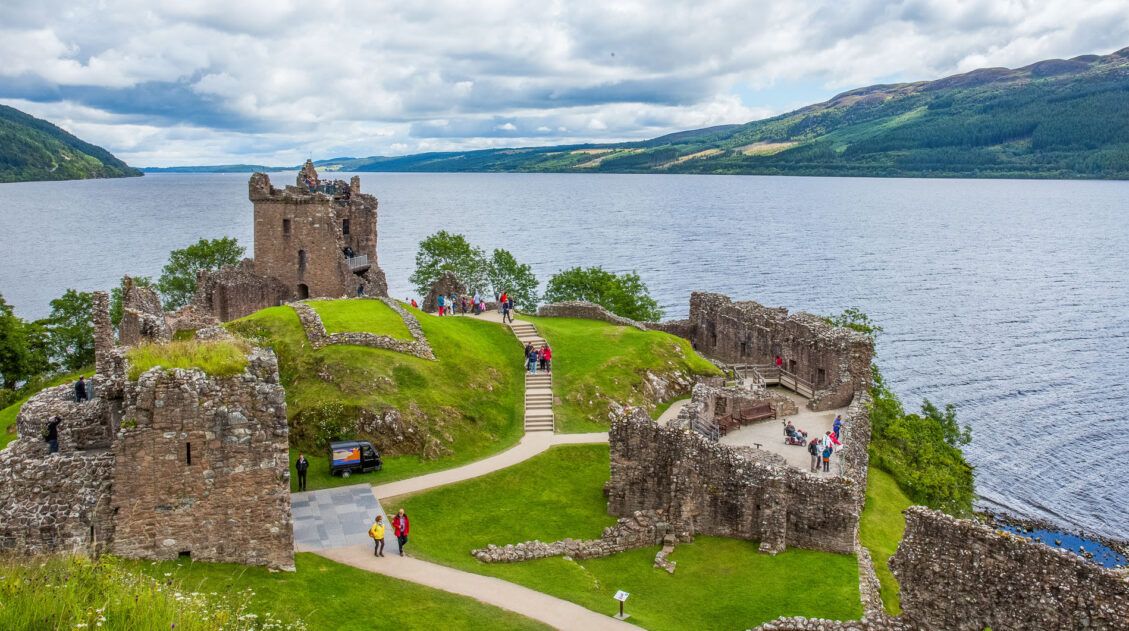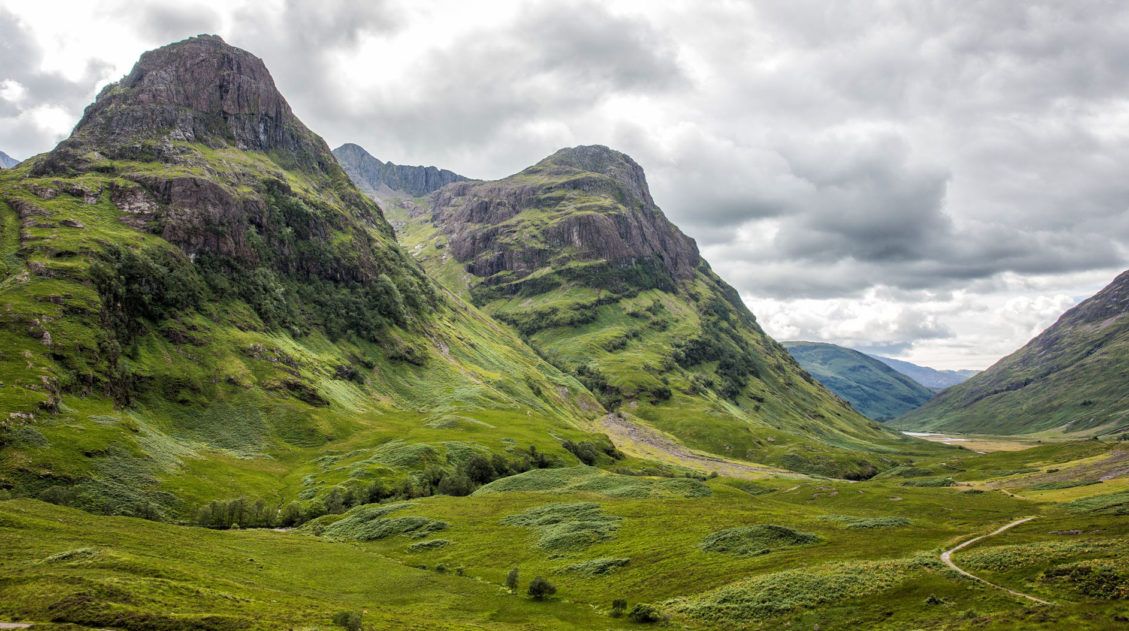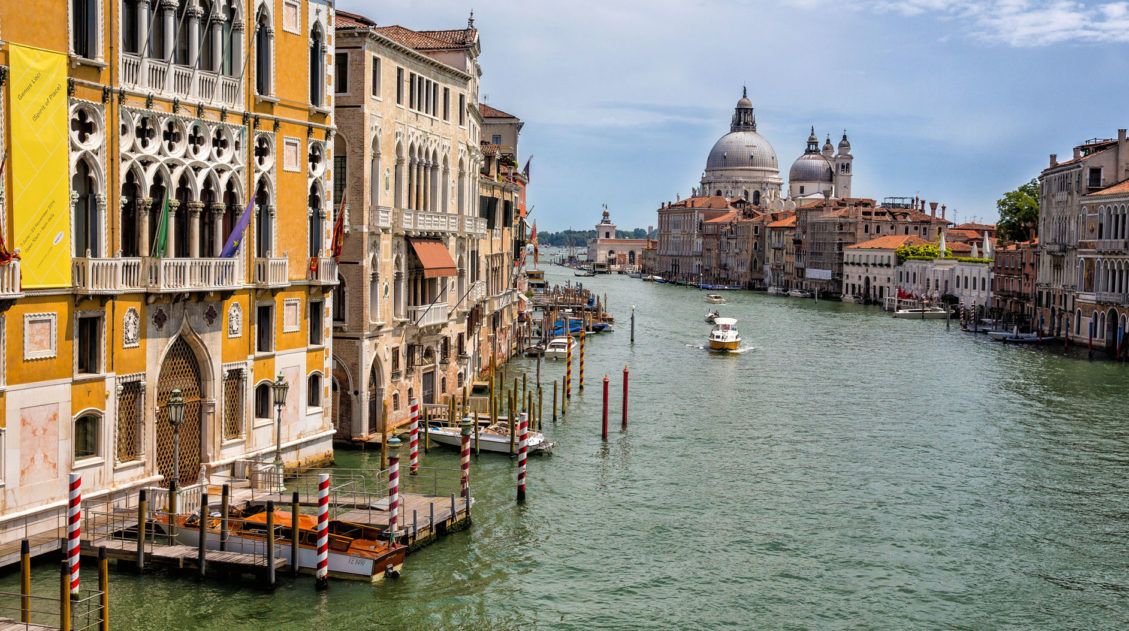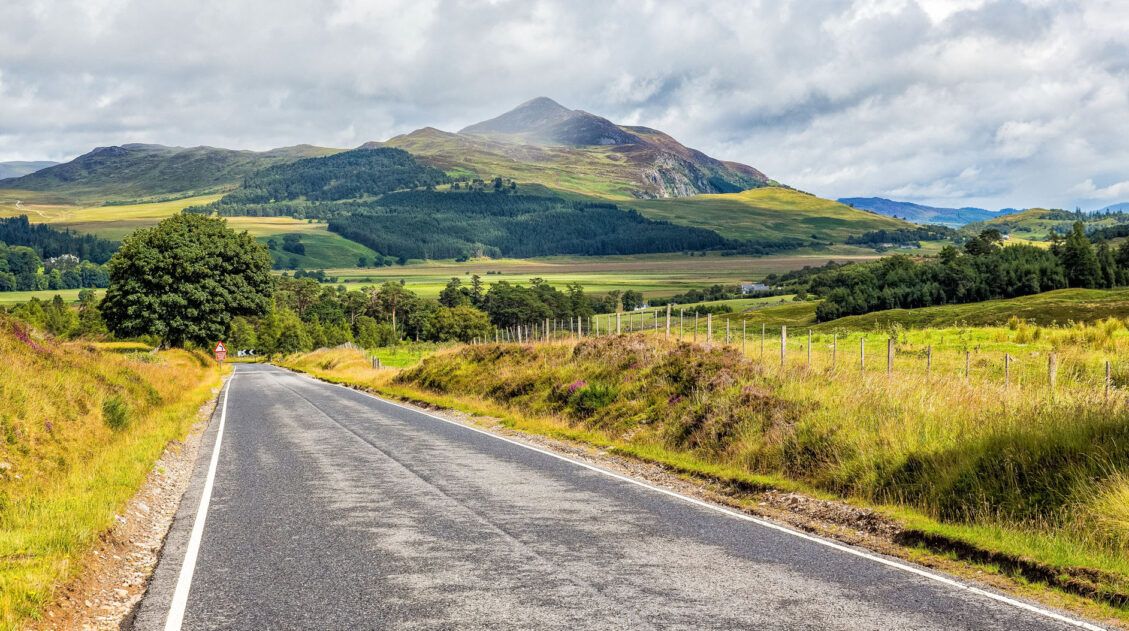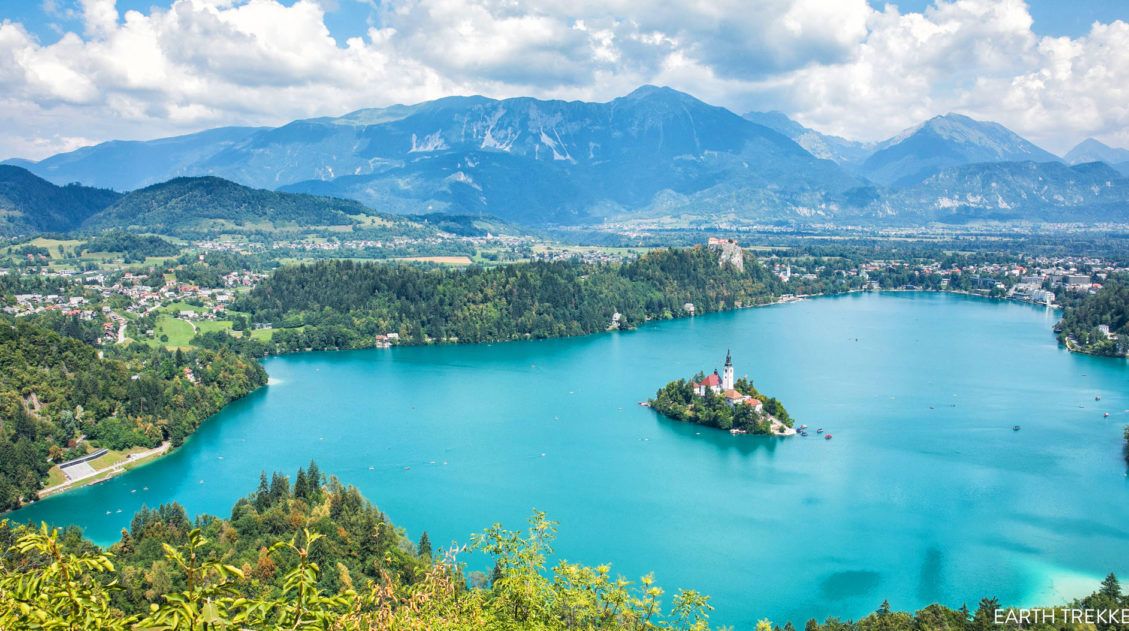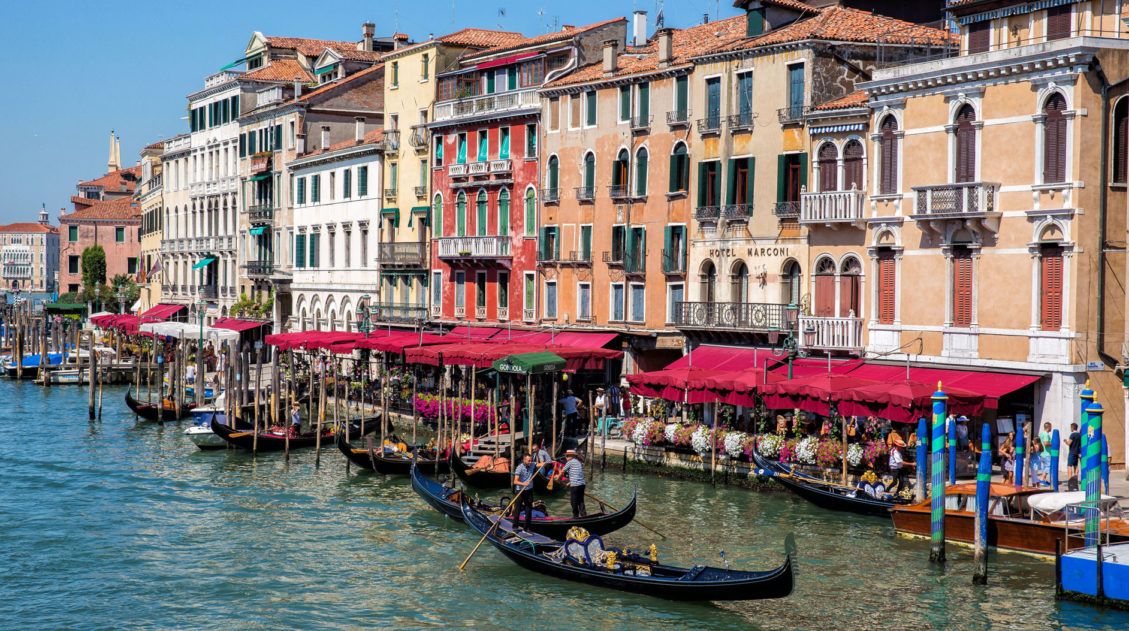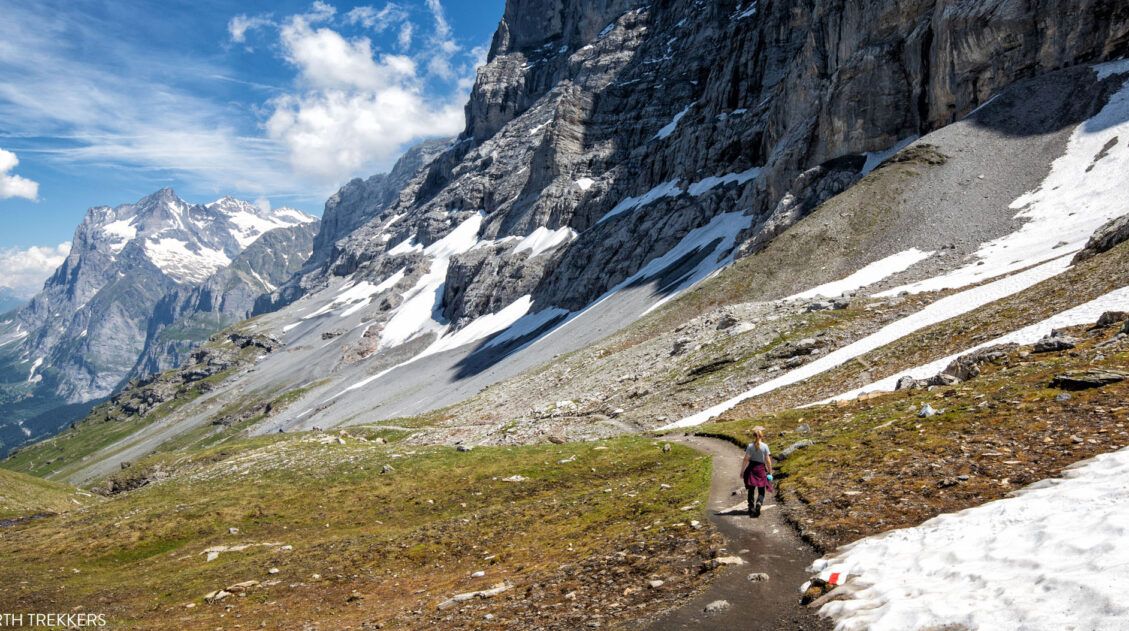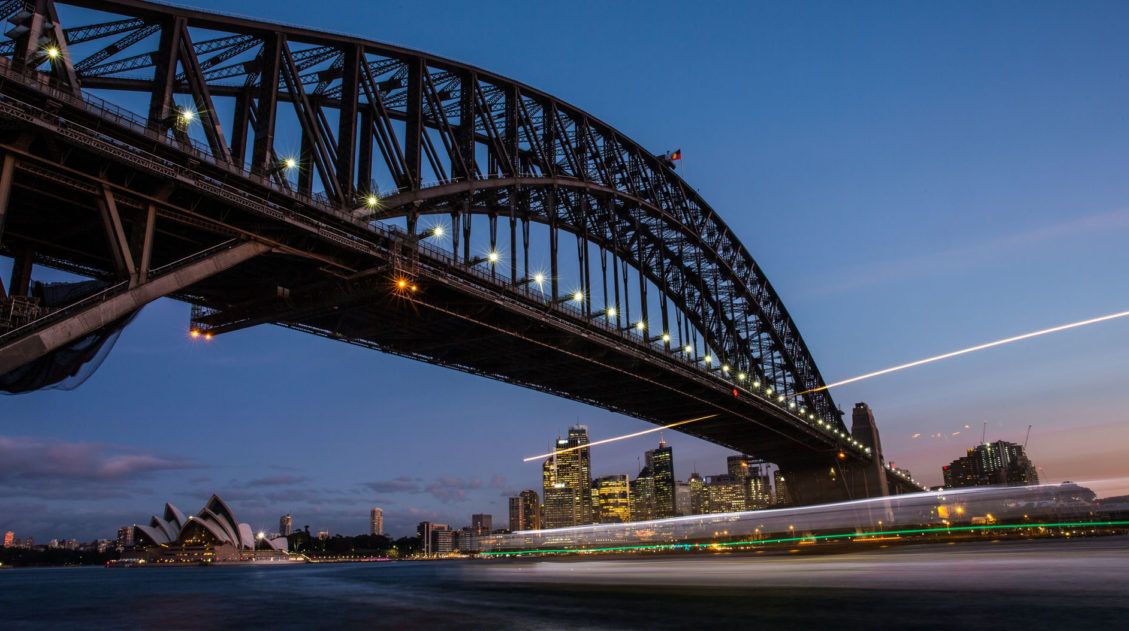Scotland Travel Guide
Scotland is a place of dramatic Highlands, medieval cities, castle-dotted coastlines, and some of the most unforgettable road trips in Europe. From exploring Edinburgh’s Royal Mile to hiking on the Isle of Skye and driving through Glencoe, Scotland blends history, scenery, and adventure in a way few destinations can.
We’ve road-tripped across Scotland, climbed Arthur’s Seat, explored Edinburgh Castle, hiked in the Highlands, and spent days discovering the Isle of Skye’s most iconic landscapes. In this Scotland Travel Guide, we’ll show you exactly how to plan your trip, including how many days you need, when to visit, must-see highlights, and links to our detailed itineraries and regional guides.
Whether you’re planning a first-time visit or a scenic Highlands road trip, this guide will help you build the perfect Scotland itinerary.
Start Here: Planning Your Scotland Trip
If you’re just getting started, here’s where to go next:
- Want a complete day-by-day plan? → Read our 10 Day Scotland Itinerary
- Visiting the Isle of Skye? → Start with our Isle of Skye Travel Guide
- Spending time in Edinburgh? → Use our 2 Days in Edinburgh Itinerary
- Planning a road trip? → See our guide to Driving to the Isle of Skye
- Short on time? → Jump to How Many Days Do You Need in Scotland?
Scotland At A Glance
Official Languages: English, Scots, and Scottish Gaelic
Population: 5 million
Capital City: Edinburgh
Currency: Pound sterling
Power Outlet: Type G
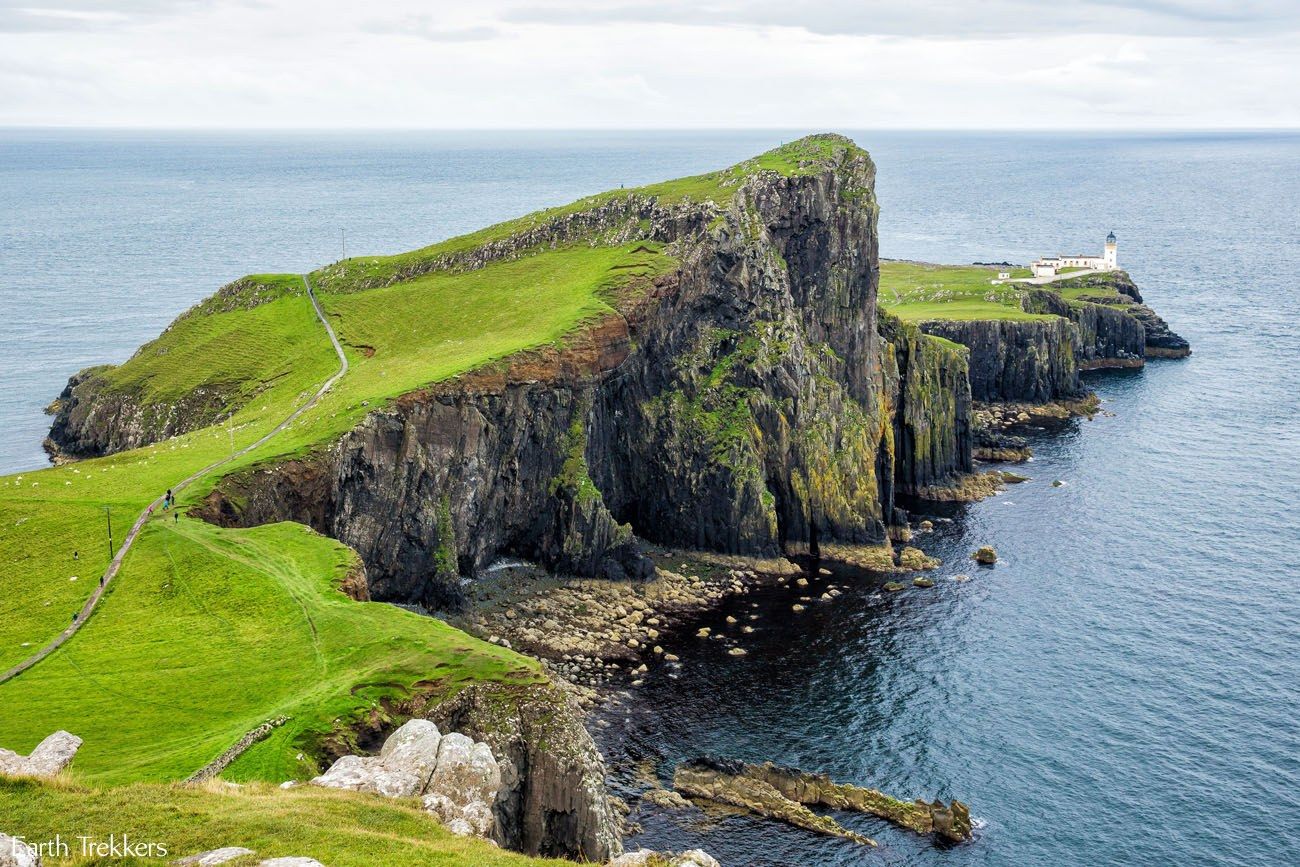
Scotland Itinerary
On a map, Scotland may look small. But don’t let that fool you…there is a lot to see and do here. From visiting castles to sipping whisky to bagging some Munros to exploring the mystical Isle of Skye…there is enough to keep you busy for weeks. In this Scotland itinerary, you will be able to see the very best of this amazing country.
Visit Edinburgh, drive through the Highlands of Scotland, with the option to visit Loch Ness. Spend several days on the mystical Isle of Skye, visit Glencoe, and end your trip with 24 hours in Glasgow.
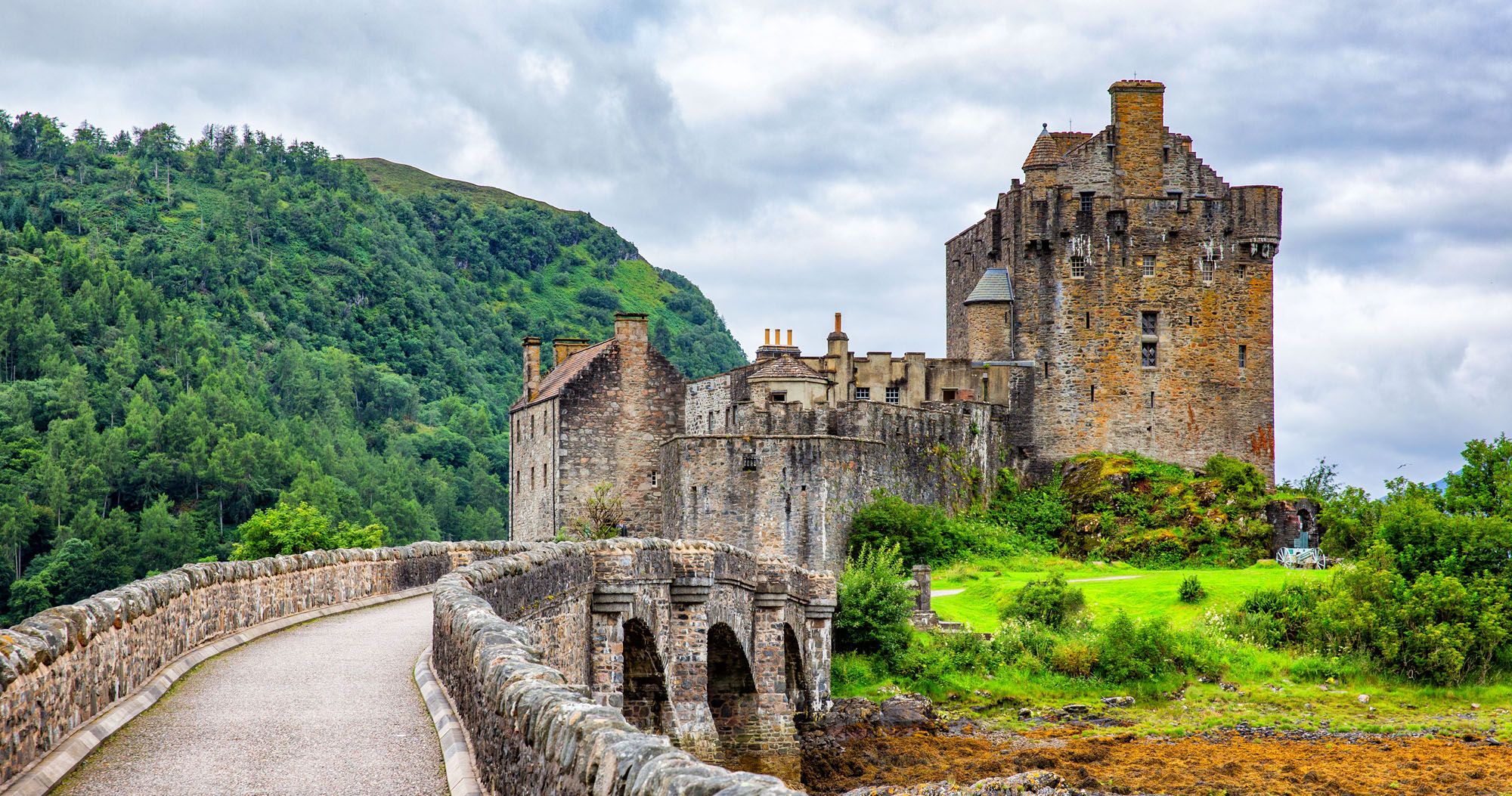
10 Day Scotland Itinerary: Edinburgh, Glasgow & the Isle of Skye
Edinburgh
Edinburgh is a great place to start or end a Scottish road trip. Learn about the best things to do in Edinburgh and how to plan your visit.
11 Awesome Things to Do in Edinburgh with Kids
Edinburgh is one of the best cities in Europe to take your kids. Visit a castle, climb an extinct volcano, take a Harry Potter tour, learn about medieval history, and pay a visit to a spooky dungeon. What kid would not find this interesting? If you plan on visiting Edinburgh with kids, we have great […]
2 Days in Edinburgh: The Perfect Itinerary for Your First Visit
Edinburgh is one of those cities that feels made for a short visit: historic streets you can explore on foot, dramatic viewpoints, cozy pubs, and world-class sights packed into a compact Old Town. With just two days in Edinburgh, you can see the city’s highlights without feeling rushed, from Edinburgh Castle and the Royal Mile […]
Best Way to Climb Arthur’s Seat: An Extinct Volcano in Edinburgh
Arthur’s Seat is one of the best things to do in Edinburgh, and one of the easiest ways to escape the city without ever leaving it. Rising above Holyrood Park, this extinct volcano offers panoramic views over Edinburgh’s Old Town, New Town, and the surrounding countryside, all for a relatively short and rewarding hike. We’ve […]
Dean Village…Why it Needs to be on your Edinburgh Itinerary
The list of must-see sights in Edinburgh is long. Every visitor knows to visit the Edinburgh Castle, walk the Royal Mile, eat haggis, climb Arthur’s Seat, and go whisky tasting. But there are sights off the main tourist trail that are so worth your time. One of these underrated but incredibly scenic spots is Dean […]
Driving to the Isle of Skye from Edinburgh or Glasgow
The Isle of Skye is one of Scotland’s most popular destinations. It may seem like a long drive to get there, but by adding in scenic pitstops along the way, you can turn the journey into a sightseeing adventure. In fact, the journey through Scotland is almost as good as the destination! There are multiple […]
How to Visit Edinburgh Castle & Avoid the Crowds (What We Did)
Rising up from the center of Edinburgh is the famous Edinburgh Castle. Wherever you go in Edinburgh, there it is, the castle, proudly towering over the rest of the city. With its prominence and history, visitors arrive by the hundreds every day to tour its sites. Did you know that Edinburgh Castle is the most visited […]
Where to Get the Best Views of Edinburgh
Are you planning a trip to Edinburgh? Sure, you can’t miss the Edinburgh Castle, the Royal Mile, dinner in a pub, and whisky tasting, but you also cannot miss the best views of Edinburgh. No trip to Edinburgh would be complete without a climb up Arthur’s Seat or a view from the Scott Monument. In this guide, we’ll break down the […]
Glasgow
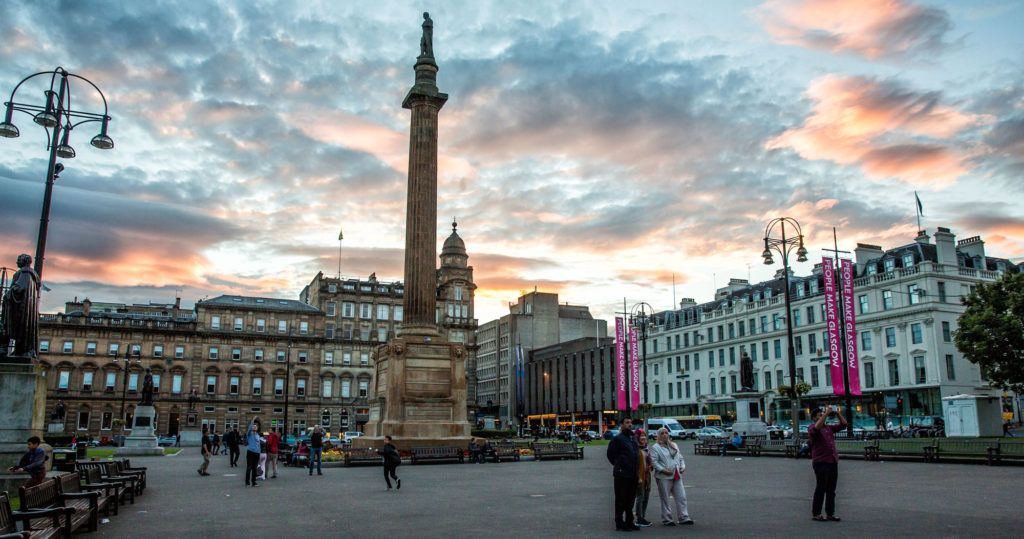
Glasgow, Scotland: 24 Hours of Fun for the Whole Family
Glasgow is often an overlooked destination in Scotland. Most people tour Edinburgh and then head to the Highlands, for good reason, as both of these places are amazing. But Glasgow is worth a visit. It’s a great Scottish city with 24 hours you can see the highlights.
Isle of Skye
The Isle of Skye is one of the best places to visit in Scotland. If you want to see some truly spectacular scenery, and some of the most iconic landscapes in Scotland, don’t miss the Isle of Skye.
Isle of Skye Travel Guide: How to Plan Your Visit
Planning a trip to the Isle of Skye? This Isle of Skye travel guide covers everything you need to know, the best places to visit, where to stay, how long to spend, when to visit, and essential travel tips for exploring Scotland’s most dramatic island. With its towering sea cliffs, winding single-track roads, misty mountain […]
Driving to the Isle of Skye from Edinburgh or Glasgow
The Isle of Skye is one of Scotland’s most popular destinations. It may seem like a long drive to get there, but by adding in scenic pitstops along the way, you can turn the journey into a sightseeing adventure. In fact, the journey through Scotland is almost as good as the destination! There are multiple […]
12 Wonderful Things to Do on the Isle of Skye (2026 Guide & Map)
The Isle of Skye is Scotland’s most dramatic destination — a wild landscape of jagged cliffs, hidden waterfalls, fairy-tale hills, and rugged mountain peaks. We spent several days exploring Skye’s most iconic viewpoints and lesser-known corners, hiking the Quiraing, watching the sunset at Neist Point, and discovering quiet spots like Brother’s Point. In this guide, […]
Our Attempt on Bla Bheinn, Scotland
Bla Bheinn (Blaven) is one of the most spectacular hikes on the Isle of Skye, if not all of Scotland. From the summit, hikers have 360° views along the Cuillin Ridge and over the Isle of Skye. It was a hike that we were all really looking forward to. But things would not work out […]
How to Visit the Fairy Pools on the Isle of Skye
The Fairy Pools are one of the most visited sites on the Isle of Skye of Scotland. Why? It’s an easy walk along a series of small waterfalls with the Cuillin Mountains as a backdrop. We were here under less than ideal conditions. Once again, we awoke to cloudy, rainy skies. It drizzled off and […]
How to Visit the Old Man of Storr, Isle of Skye, Scotland
If there was one thing we wanted to see on the Isle of Skye, it was the Old Man of Storr. The Old Man of Storr is iconic Scotland: spiky pinnacles of rock set against the backdrop of rolling green hills and the coastline of the Isle of Skye. This image is featured in Scotland […]
How to Visit Brothers Point, The Isle of Skye’s Hidden Treasure
Brothers Point, also known as Rubha nam Brathairean, is a beautiful place to visit on the Isle of Skye. The views of the peninsula are stunning. And because very few people know about this gem, you just may have it all to yourself. If you are traveling to the Isle of Skye, put Brothers Point […]
Fairy Glen: The Cutest Place to Explore on the Isle of Skye
The Fairy Glen is a lesser-known attraction on the Isle of Skye. It’s also one of the cutest places on the island to explore. The Fairy Glen was the first place we visited on the Isle of Skye. Located on the Trotternish Peninsula, it is easy to combine the Fairy Glen with a visit to […]
Hiking the Quiraing on the Isle of Skye
For one of the most spectacular views on the Isle of Skye, do not miss the Quiraing. These dramatic cliffs are gorgeous, rain or shine. The hike around the Quiraing was high on our list. There is no better way to see the scenery than hiking around the Quiraing. Of course, this is Scotland, and […]
More of Scotland
If you are road tripping through Scotland, Glencoe is a beautiful spot to visit. If you are a hiker, the Kintail Saddle is a spectacular hike to put on your list. And we also cover if Loch Ness is worth adding to your Scotland itinerary.
Hiking the Kintail Saddle in Scotland
Our hiking shoes got a lot of use in Scotland. But the most memorable hike, the one that had our legs trembling with fatigue and our eyes wide open with amazement, was the Kintail Saddle. Before flying to Scotland, I did a lot of research looking for that perfect Scottish hike. For us, the perfect […]
Loch Ness and Urquhart Castle…Are They Worth Visiting?
Without a doubt, Loch Ness is Scotland’s most famous loch. Legend has it that this lake is home to Nessie, the Loch Ness monster. People travel all over the world to visit this famous loch, hoping to get a chance to spot the elusive underwater monster. But does that make Loch Ness worth visiting? Our […]
Postcards from Glencoe, Scotland
If you are taking a road trip through Scotland, Glencoe should be on your list of places to visit. This gorgeous valley is a great place for families, hikers, and those that love the great outdoors. You can either drive through it, spending just an hour here, or you could easily spend an entire day hiking […]
Top Experiences in Scotland
Edinburgh: Our time exploring Edinburgh was an absolute delight. This medieval city is a picturesque wonder with a plethora of activities to enjoy – from climbing a volcano and discovering the inspiration behind JK Rowling’s Harry Potter series to touring a castle, delving into how whiskey is made, and experiencing the darker side of the Middle Ages.
Isle of Skye: The Isle of Skye is a stunning destination in Scotland, known for its lush green hills that transform into towering mountains and then descend into the blue coastline. Charming towns, Highland cattle, and hiking trails dot this wondrous landscape. Hiking amidst the Isle of Skye was our favorite part of our trip to Scotland.
Glencoe: If you are taking a road trip through Scotland, Glencoe should be on your list of places to visit. This gorgeous valley is a great place for families, hikers, and those that love the great outdoors. You can either drive through it, spending just an hour here, or you could easily spend an entire day hiking and exploring.
Glasgow: Glasgow is one of Scotland’s largest cities, and though it does not hold as much historical importance as Edinburgh, it is still a fun place to be. This modernized city is packed with whiskey distilleries, rowdy pubs, and pedestrian shopping streets.
Photograph the Eilean Donan Castle: Eilean Donan Castle, situated on an island where three lochs converge amidst breathtaking scenery, is a stunning fortress with a rich history. Once pivotal in the Jacobite revolution, the castle now stands as one of the most photographed and iconic landmarks in all of Scotland.
Loch Ness and Urquhart Castle: Loch Ness is Scotland’s most famous loch. Legend has it that this lake is home to Nessie, the Loch Ness monster. People travel all over the world to visit this famous loch, hoping to get a chance to spot the elusive underwater monster.
Loch Lomond and the Trossachs: Loch Lomond, located just north of Glasgow, is a vast lake surrounded by mountains to hike, quaint villages to explore, and opportunities for water sports. Trossachs National Park, the region around Loch Lomond, offers enchanting trails around multiple lochs, woodlands, and mountains. Additionally, don’t miss Doune Castle, known as the set of Winterfell in Game of Thrones and featured in Outlander and Monty Python and the Holy Grail.
Stirling Castle: Stirling Castle stands as one of the most impressive castles to visit in Scotland. This grand fortress boasts a rich history intertwined with royalty, sieges, and battles for independence.
Cairngorms National Park: As the largest national park in Great Britain, Cairngorms is a place of outdoor adventure, traditional Highlands culture, wildlife, distilleries, and ancient fortresses. This National Park has some of the tallest mountains in the UK, making it a perfect location for skiing and hiking.
How Many Days Do You Need in Scotland?
In order to tour the highlights of Scotland (Edinburgh, the Isle of Skye, and the Highlands of Scotland), plan on spending 8 to 10 days in Scotland. Eight days gives you just enough time to spend two full days in Edinburgh, drive to and from the Isle of Skye (visiting a few places on the drive), and two days in the Isle of Skye.
Best Time to Visit Scotland
Early May through mid-June is a great time to visit Scotland.
June, July, and August are the warmest months of the year, with average daytime highs of 18°C (65°F).
April, May, and June are the driest months of the year, averaging about 10 days of rain per month.
The summer gets the most visitors. If you are looking for good weather and lower crowds, plan your visit from early May through mid-June. Expect big crowds in July and August. In September, visitation and crowds go down, but rain chances increase.
Europe Travel Inspiration & Practical Info
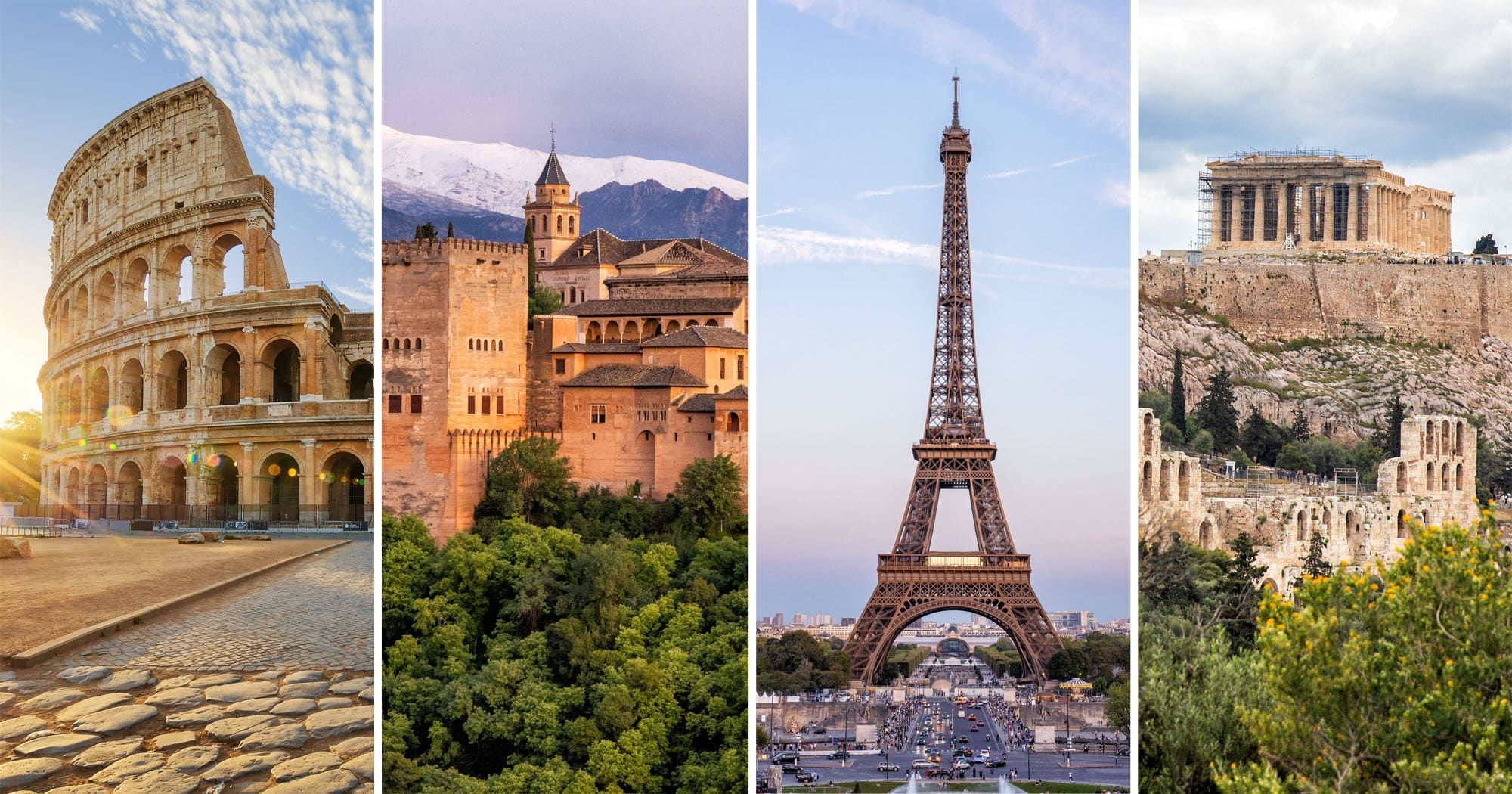
30 Popular Tourist Attractions in Europe & How to Visit Them
From world class museums and ancient archaeological sites to stunning natural wonders, Europe boasts a diverse array of attractions that attract millions of visitors every year. Here are 30 of the most popular tourist attractions in Europe and how to visit them.
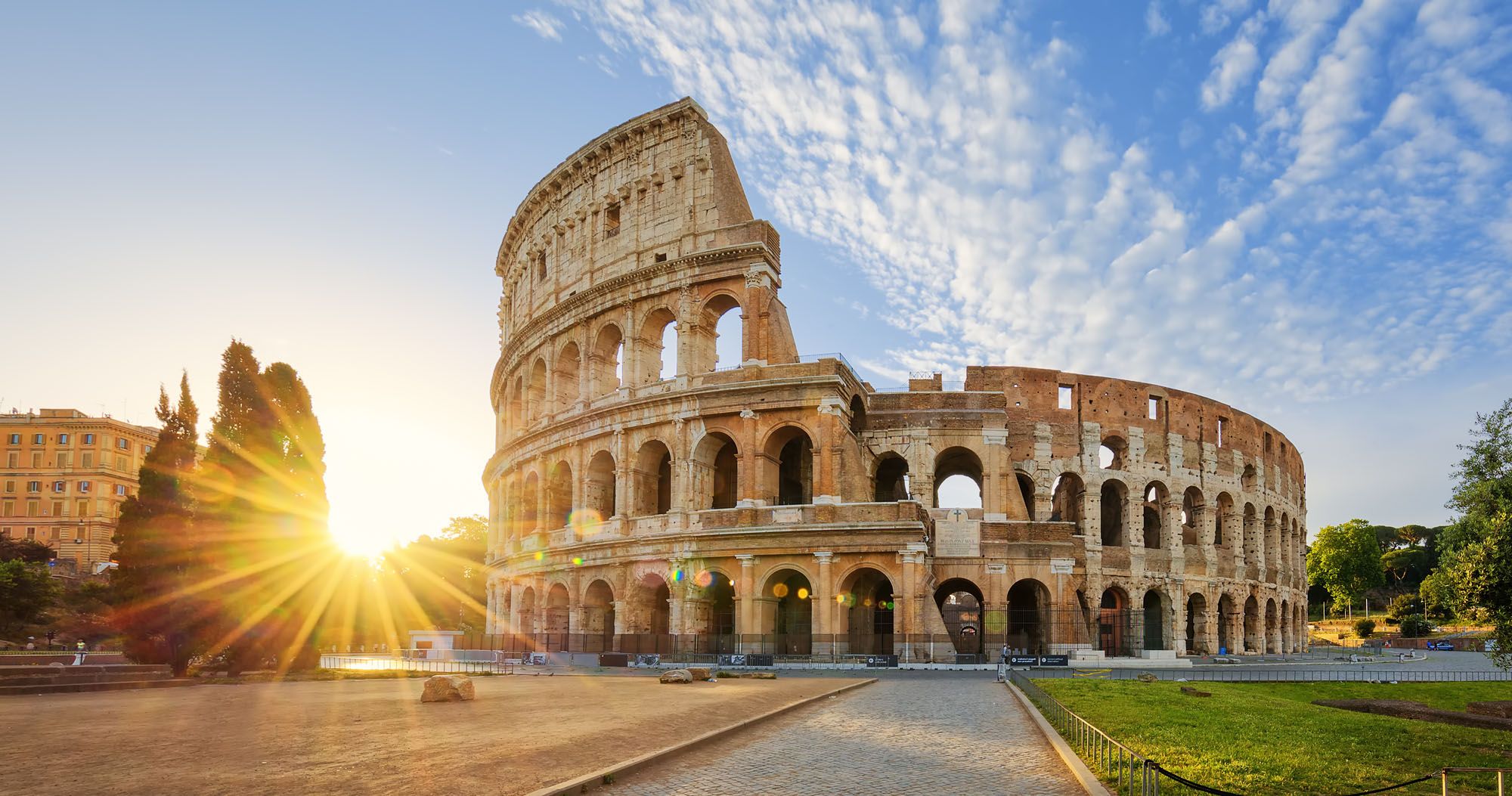
One Week in Europe: 25 Epic Itineraries
Do you dream of visiting world-class cities like Paris, Barcelona, or Venice? Or would you rather hike the Alps, go on a scenic train ride, explore the beautiful beaches and coastal towns in southern Europe, visit fairytale towns and castles, island hop in Greece, or go on an unforgettable road trip in northern Europe?
In this article we list 25 ways to spend one week in Europe.
10 Days in Europe: 10 Amazing Itineraries for Your Next Trip
Europe is a joy to explore. With world-class cities, medieval towns, historical sites, the snowcapped Alps, gorgeous beaches, and some of the world’s most delicious food, you have the perfect ingredients for your next vacation. If you want to spend 10 days in Europe, we have ten amazing itineraries to share with you. In this […]
15 Things You Should Know about Renting a Car in Europe
Having a car provides a lot of freedom and convenience when traveling through Europe. You can travel at your own pace, stop frequently to take in the view, and get to some places that are difficult to reach with public transportation. However, there are some things to know about renting a car in Europe. Knowing […]
30 Beautiful Places to Visit in Europe (+ Our Favorites)
It is no secret that Europe is home to some of the world’s most beautiful destinations. From grand historic cities and charming fairytale towns to soaring mountain ranges and sun-soaked beaches, there is a seemingly endless list of gorgeous places to explore. Whether you are planning your next trip to Europe, or just trying to […]
7 Things to Know When Planning Your First Trip to Europe
If you are planning your first trip to Europe, it can be an overwhelming experience. Where should you go? How much will it cost? How many places can you visit? Does this sound familiar? We get emails every day from people who want advice planning their first trip to Europe. And we see the same […]
Best Hikes in Europe: Our 20 Favorite Day Hikes
Europe is one of our favorite places to go hiking. There’s no better way to explore the dramatic and varied landscapes here, from the snow-capped Alps to coastal trails to the remote, volcanic interior of Iceland. In this guide we list 20 of the best hikes in Europe, 20 amazing ways to explore this beautiful […]
Travel Photography Gear Guide: What’s In Our Camera Bag
Do you want to know how we capture the images that you see on our website? Here is our photography gear guide, with links and explanations of our photography gear and accessories. At the end of this post, we offer tips and tricks on how to take better photographs while traveling. October 2025 Update: We […]
